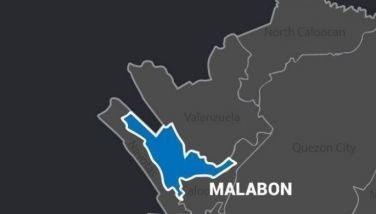DAR to infuse P3.1 B for ARCs’ program in Eastern Mindanao
October 3, 2004 | 12:00am
The Department of Agrarian Reform (DAR) will infuse P3.1 billion to support ongoing development projects in various agrarian reform communities (ARCs) in Eastern Mindanao.
In a statement, Agrarian Reform Secretary Rene Villa said the fund, which the Japan Bank for International Cooperation will provide as overseas development assistance, will bankroll the Mindanao Sustainable Settlement Area Development (MINSSAD) program.
Villa said the program aims to provide agrarian reform beneficiaries greater access to support services and make their lands productive.
"Support services are vital to realize agricultural productivity and economic growth because land distribution is meaningless unless it will raise farm income and improve farmers’ income which will also help the country’s economy," he said.
The MINSSAD program will benefit 21,186 farmers in 122 barangays in eight ARCs in Bukidnon, Davao del Norte, Compostela Valley, Davao Oriental, Agusan Sur and Surigao del Norte.
Villa said the program involves rural infrastructure and civil works, agriculture and environmental development, institutional development of local government units and people’s organizations, livelihood and enterprise development and equipment support.
The DAR said 64 percent of the program cost will go to rural infrastructure, consisting of 119 farm-to-market roads, 29 bridges, 46 potable water systems, 64 barangay health centers, 196 classrooms and 16 multipurpose buildings.
Meanwhile, eight percent is earmarked for agricultural and environmental development that will include livestock and poultry development, reforestation and nurseries for palay, corn and off-season and high-value vegetables.
As of last month, DAR records show that two farm-to-market roads in the Cateel settlement have been completed. There are still 24 ongoing road projects.
The MINSSAD program started in 2002 and will run until 2006.
In a statement, Agrarian Reform Secretary Rene Villa said the fund, which the Japan Bank for International Cooperation will provide as overseas development assistance, will bankroll the Mindanao Sustainable Settlement Area Development (MINSSAD) program.
Villa said the program aims to provide agrarian reform beneficiaries greater access to support services and make their lands productive.
"Support services are vital to realize agricultural productivity and economic growth because land distribution is meaningless unless it will raise farm income and improve farmers’ income which will also help the country’s economy," he said.
The MINSSAD program will benefit 21,186 farmers in 122 barangays in eight ARCs in Bukidnon, Davao del Norte, Compostela Valley, Davao Oriental, Agusan Sur and Surigao del Norte.
Villa said the program involves rural infrastructure and civil works, agriculture and environmental development, institutional development of local government units and people’s organizations, livelihood and enterprise development and equipment support.
The DAR said 64 percent of the program cost will go to rural infrastructure, consisting of 119 farm-to-market roads, 29 bridges, 46 potable water systems, 64 barangay health centers, 196 classrooms and 16 multipurpose buildings.
Meanwhile, eight percent is earmarked for agricultural and environmental development that will include livestock and poultry development, reforestation and nurseries for palay, corn and off-season and high-value vegetables.
As of last month, DAR records show that two farm-to-market roads in the Cateel settlement have been completed. There are still 24 ongoing road projects.
The MINSSAD program started in 2002 and will run until 2006.
BrandSpace Articles
<
>
- Latest
- Trending
Trending
Latest
Trending
Latest
Recommended































